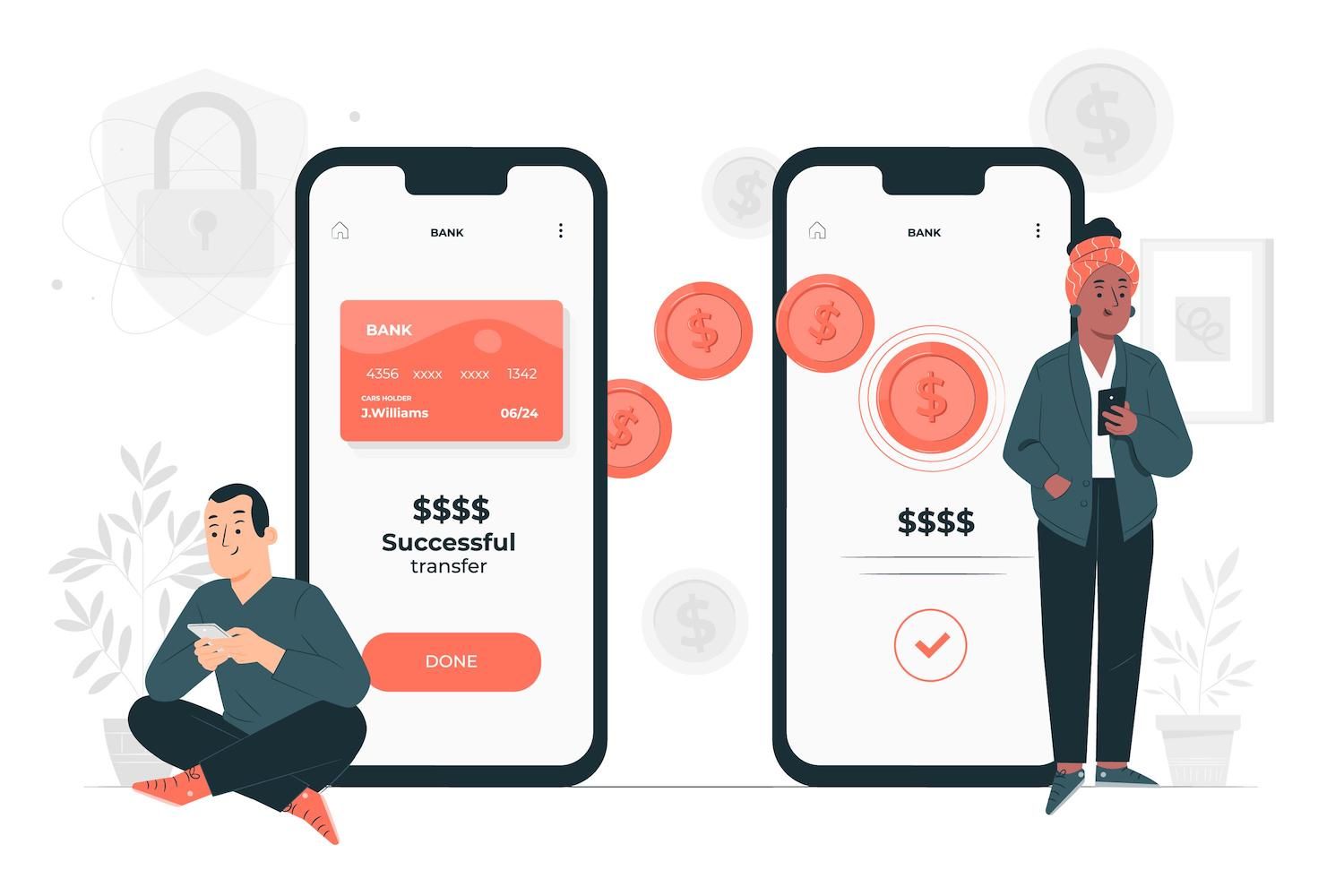International Recurring payments (How we handle it for You) (How We Handle It for You)
If you are managing international recurring payments, there are three overarching considerations:
- Staying current in local tax laws and transactions regulations
- Making it really simple for consumers to complete their first purchase, and then join for regular payments
- Ensure that each payment after goes through
While this may sound simple however, there's an array of factors to consider to achieve those three goals such as:
- Rates of currency conversion
- Payment types that are preferred
- Payment processing
- The tax collection and remittance for each nation, state, or territory and so on.
- Payment failure handling
- Fraud prevention
- Controlling subscriptions
- Translations of the site
- Chargebacks
- Dunning process
- Plus there's and much more.
A majority of the recurring payment service providers can only aid you in a few of these areas and leave the remainder for you to determine. For example, some payment solutions will aid you with processing payments in foreign currencies but they will not help you pay your taxes in these nations.
In this article We will explain what it takes to be the Merchant of Record and how :
- Collects and pays sales taxes (including GST, VAT as well as GST.) to you
- is in compliance with local regulations and laws
- Reduces churn with pre-emptive payment retries and notifications
- makes it very simple for customers to buy
- Manages recurring payments for you
- Offers all the features at a single price
What Does it Mean to Have as Your Merchant of Record
A Merchant of Record (MoR) is a company that sells goods or services to buyers. The MoR is in charge of every element of the transaction, including gathering and processing payment details including security, taxes and compliance charges, audits and so on. If there is a problem or is not done correctly The MoR is able to resolve the issue on your behalf.
Businesses can be their own MoR and take care of all these tasks internally. Or, they could transfer the entire process to us and allow us to assume full responsibility for every transaction. As the MoR, you have control over the service or product, customer experience and brand and we take care of everything else, namely taxes, legal compliance as well as credit card network approval rates, dunning, and many more.
Let the Collectors and Payment of VAT and Sales Tax.
It was once the case that SaaS as well as software were not exempt from tax law in many jurisdictions throughout the world (or just not a major target for audits). Tax regulations for digital sales are changing and are being increasingly implemented.
Every country, state, province, territory, etc. that you do business with has its own laws regarding the amount and type of taxes that need to be collected and when they must be payed. And that's a lot to manage.
Note:.
The majority of the time, global tax management will require a payment processing platform as well as the tax compliance software to determine and collect sales and VAT taxes on each transaction. Although some payment services pay taxes on your behalf however, you'll be accountable for paying the taxes. If you don't make the proper payment of tax, you could end up owing thousands of dollars in interest, penalties and penalties. But figuring out how to be tax-paying in all jurisdictions can be very tedious and usually requires a group of accountants and tax professionals.
When is your MoR is due, we collect and transfer consumption tax (including GST, VAT, SST, etc.) for every transaction and file all necessary tax returns for you.
Automatically calculates and applies the tax amount to be included in the cost at the time of checkout. We also support tax-exempt transactions as well as other specific cases.

Always be in compliance with Local Laws and Regulations
Similar to taxes, every country, state, territory, etc. additionally has their individual laws and regulations regarding the way that recurring transactions are conducted. As an example it is there is a law that states the Reserve Bank of India limits the automatic recurring payment to Rs15,000 INR. If a payment is over this amount, the user is required to approve the transaction with additional factor authentication (AFA) like an single-use password (OTP). To comply with this RBI regulation, you also have to file an e-mandate that outlines the type of AFA you will use.
This is just one example of the kinds of laws you need to be aware of when you are transacting internationally.
Maintaining a current knowledge of the regulations in each local area can be time-consuming as well as cost a lot. If you don't have proper procedures put in place, you'll never be able to collect payments. A few payment systems can assist you in staying on top of local regulations and laws by notifying you when they learn about any new regulations or laws. But, you are ultimately held liable for knowing about and following all applicable laws and regulations.
But for customers, this won't be an issue because, as the MoR for you is our responsibility, we are fully responsible in ensuring that we adhere to the local laws and regulations for transactions. Our team of legal experts stay up to date on every legal aspect and makes sure all the necessary processes are in place to taking payment.
is fully compliant with the EU General Data Protection Regulation (GDPR) and the California Consumer Privacy Act (CCPA). Additionally, we renew our level one certification (which is the highest level that is possible) by certifying to the Payment Card Industry Data Security Standard (PCI DSS) every year.

Eliminate Involuntary Churn through Automatic Payment Retries and Customer Notifications
Since involuntary churn is one of the main ways businesses that use subscriptions lose clients, many companies have a system for automatically retrying payment failures or informing the customers about failed payments. It is an excellent starting point, however the next step is to notify customers of soon-to-be-expired payment types before they make the payment, and then monitor repeatedly times after failing a payment. But, it will take many hours of employees and effort to maintain these systems.
We handle every payment error and notification for our customers.
Sends reminder emails to cardholders when their card is about to expire so they can change their card information prior to whenthe card payment goes through. Additionally, the system automatically attempts to retry failed payments. If the payment continues be unsuccessful, the system will promptly inform the client. You can also choose to have us send out reminder email notifications two, five, seven, 14 and 21 days after their payment method fails. We have found that these reminders and alerts could drastically reduce the rate of uninvoluntary the churn.

During this time your client's service will not be affected. By continuing the service it will make the client less likely to allow the service lapse, and is more likely to take the time to update their information.
It is also possible to suspend rather than cancel their service if they fail to change the payment details. This allows the customer to resume their subscription , without the stress of re-onboarding.
Create a streamlined process for buyers to purchase using preferred Payment Methods, Localized Transactions, Translations, and More
In the process of purchasing, friction may cause companies to take on smaller numbers of customers than they could. For foreign customers, there could be several causes for payment-related friction. Examples include:
- You don't offer the payment method they prefer
- The message at checkout isn't in a language they know.
- The price isn't listed in the local currency.
- The transaction gets declined or takes too long to finish
assists you in overcoming these obstacles with:
- accepting a wide variety of payment methods (and managing these choices so that transactions are swiftly authorized)
- The translation of your payment page(s) to many different languages
- Converting the price to local currency
We will discuss this in more specific detail in the next sections.
Preferred Payment Methods
Different forms of payment are accepted in different countries. If you don't offer forms of payment that certain buyers use, you'll convert less of them to customers. That's why it's important to ensure your payment solution will support the various kinds of payments your customers who are in the market for are acquainted with. In reality, some International payment options are very limited in the types of transactions they can accept.
For example, some payment services will only accept debit transactions. If your customers of choice use debit or credit card (e.g., PayPal) This could be a problem.
If you are looking to accept international payments, you also have to be aware of the variety of credit cards used in different countries. For example, while MasterCard as well as Visa credit cards are commonly utilized by people in the United States, UnionPay is more common in China.
However, adding and managing payment methods that are popular is more complex than simply including their logos on your checkout screens. Each card issuer has different tolerance levels for fraud and chargebacks. They also have different rules regarding how transactions take place. If you aren't in compliance to these rules, the card network may stop authorizing payments altogether.
Also, it supports the most the most popular payment options, including:
- ACH
- SEPA
- BACS Direct Debit Scheme
- PayPal
- Amazon Pay
Additionally, the card network is more likely to accept local-processed payments when the buyer's bank and the seller's bank are within the same region (for instance, a purchaser from Germany paying a business located situated in Germany). works with multiple acquiring banks across the globe and will continue to expand. As we are selling to you on behalf of a MoR, more of your company's transactions will be processed locally which means more payments will be authorized.
Automatic Currency Conversions and Translations for Language Translations
The customers are more likely believe in a checkout experience that's in their own language and currency. Therefore, if you've not changed the text of your checkout or converted your prices to local currency it's likely that you'll lose prospective clients.
With , you can transform your shopping cart's contents into several languages. You can also change the price that customers see into local currency.
For shopping cart translations, you can:
- Let each buyer select their preferred language from a dropdown menu.
- Lock the language and will instantly select the correct language depending on the location of the buyer.

You will also have two options to convert currency:
- Create your own price for every currency. Our team can assist you in determining what the fix price is.
If you choose to let convert product prices be done for you, we'll match the format used by the price. In this case, for example, if the base price is $19.99 and your conversion rate to Euros is EUR20.29 It would be changed to EUR20.99.
Modify Your Subscriptions, and let us manage the rest
It comes with all the necessary tools to create and manage different types of recurring online payment. Here are a few examples of the types of recurring payment you could handle :
- Free trial periods with or without collecting payment information in advance
- Subscription payments that are prorated
- Periods of variable billing
- The subscription is suspended
- Upgrade renewals
- Prepaid recurring billing
- The subscription comes with a single purchase upon signing up
- And more...
It's simple to setup virtually any kind of subscription in just a few steps. You can set up most subscription models without having to write codes, however, you may also create more complex subscription logic via our API and webhooks library.

All-in-One Pricing (No Hidden Fees)
Many payment system providers will charge a base price for each transaction and then cost extra for each extra feature (e.g., access to international card networks, special subscription logic or.). These kinds of prices make it hard to determine the exact amount you'll pay. It can also make it difficult to scale globally as your business grows because costs will grow as you'll need to add additional features.
doesn't charge extra for each features. Instead, our team will work out a simple, flat-rate price that gives you access to every aspect of . Your price is based on the volume of transactions you move through , and you'll only be charged when transactions are completed.
